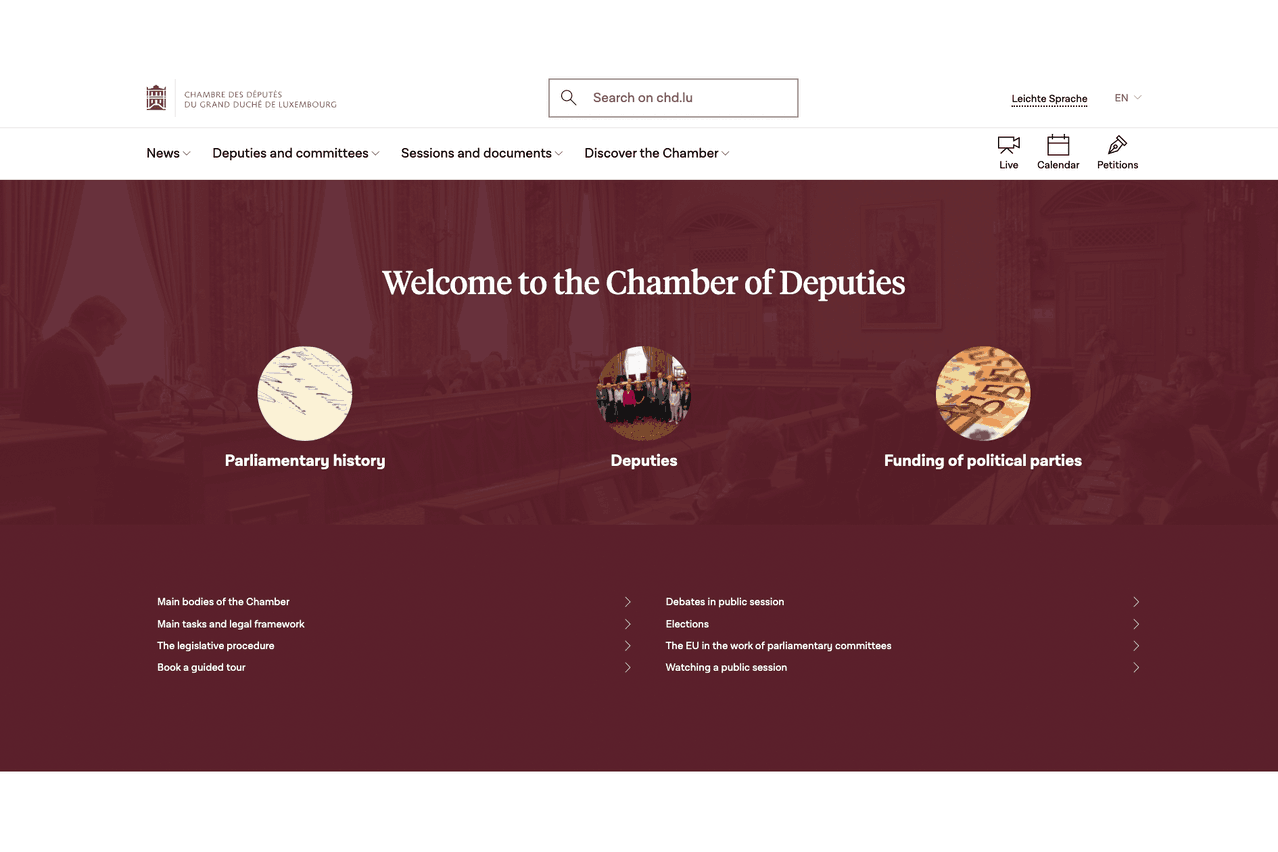Whether you want to follow the or the , you may have recently found yourself on which hadn't been changed in 15 years. It was “high time”, explains , president of the Chamber. “Habits have changed, people are using their smartphones more and more.” Hence the creation of a “responsive” site, but also one that is more secure.
The user interface is clearer, with tabs for news (calendar, articles), MPs, sessions and documents (including bills and parliamentary questions), and general explanations about the Chamber. Shortcuts lead the user to the live feed, the calendar and the petitions site.
8,000 to 10,000 visitors per day
It has been online since 5 October and its cost was “more than a million euros”. Following a call for tenders, its creation was entrusted to CGI, a Canadian company with an office in Luxembourg. It worked on the redesign for 18 months.
The aim: “to meet the requirements of all users”. But above all, to broaden the spectrum. Until now, the site attracted “specialists”, explains Etgen. He cites scientists or lawyers who come to use the “300,000 online documents” as well as journalists and even members of parliament.
The website's new design is aimed to attract citizens. To this end, a panel of 50 users, made up of private individuals and professionals took part in discussions on its development. Since it went online, it has attracted 8,000 to 10,000 visitors per day, and 4,000 during the State of the Nation address. It is difficult to compare it to the former website because that one did not “did not allow for statistics”.
Regarding the application “discussions are underway," explains Laurent Scheeck, secretary general of the Chamber. He wonders whether it is necessary to keep it as it is, now that the website is accessible by telephone.
Towards real-time transcription of public meetings
The digitalisation does not stop there. The Chamber is aiming for a “complete overhaul” of its internal IT system, right down to the computers in the plenary room.
Etgen also highlights the “speech to text” project, on which the University of Luxembourg and the centre for Luxembourgish language have been working since 2020, at the request of the Chamber. They are teaching machines to transcribe live sessions in Luxembourgish. This is expected to take "several more years". For live translations, it will be another step, even further away.
This story was first published in French on . It has been translated and edited for Delano.
